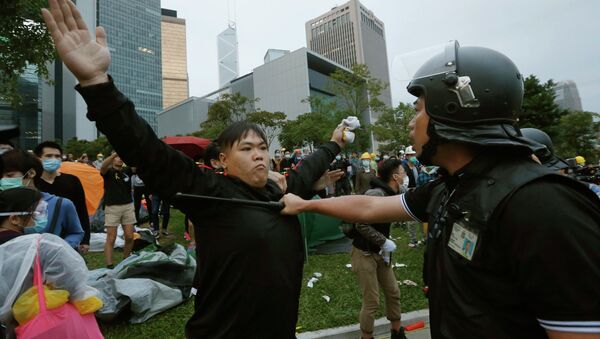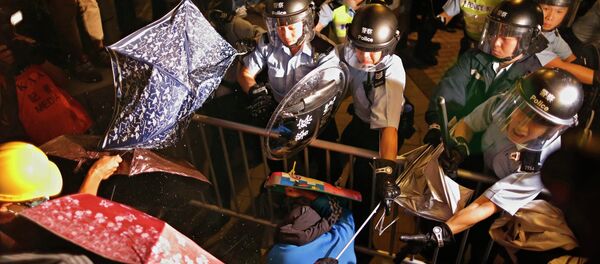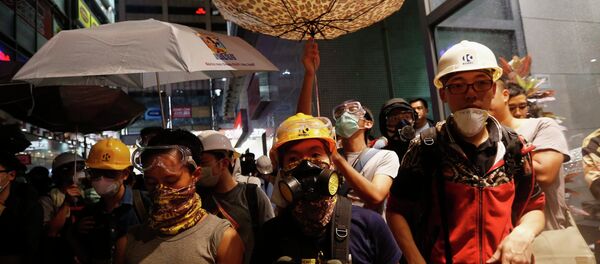"The government headquarters was paralysed this morning… to a certain extent, the goal of the action was achieved," said Alex Chow of the Hong Kong Federation of Students, as quoted by AFP.
Tensions in China’s semi-autonomous region escalated over the weekend. Riot police had to use pepper spray and batons to disperse protesters, who refused to leave the main protest site in Hong Kong.
"The atmosphere in Admiralty is very different now after the clashes last night," Jessica Lam, 20, told Reuters on Monday. "It has become very tense, like back to the early days when the protest just started," she stressed.
"I feel angry but there’s nothing we can do about it," said Justin Yan, 22, as quoted by AFP. "They (police) are supposed to protect the citizens, not (hurt) us. We saw what they did so we don’t trust them any more," the account clerk added.
The protests were sparked by Beijing’s decision to vet candidates, who will participate in the election for Hong Kong’s chief executive, scheduled for 2017. Activists claim it is an infringement on democracy. Hong Kong, which became part of China on July 1, 1997, is governed according to a "one country, two systems" principle. The 7-million region enjoys wide autonomy in all areas except foreign relations and defense.
In his latest remarks, Leung Chun-ying stressed that protesters will not achieve their goals. "I have pointed out before that Occupy Central is not only illegal but it will also be in vain," the chief executive said, referring to the ongoing protests as "intolerable", as quoted by AFP. Leung Chun-ying also urged activists, "who are planning to return to the occupation sites tonight not to do so," according to Reuters.
The demonstrations are estimated to have attracted as many as 100,000 people at the height of the protest movement. Although the protests have since lost their momentum, the activists have vowed they will continue their campaign unless their demands are met. Beijing has so far refused to make any concessions.




